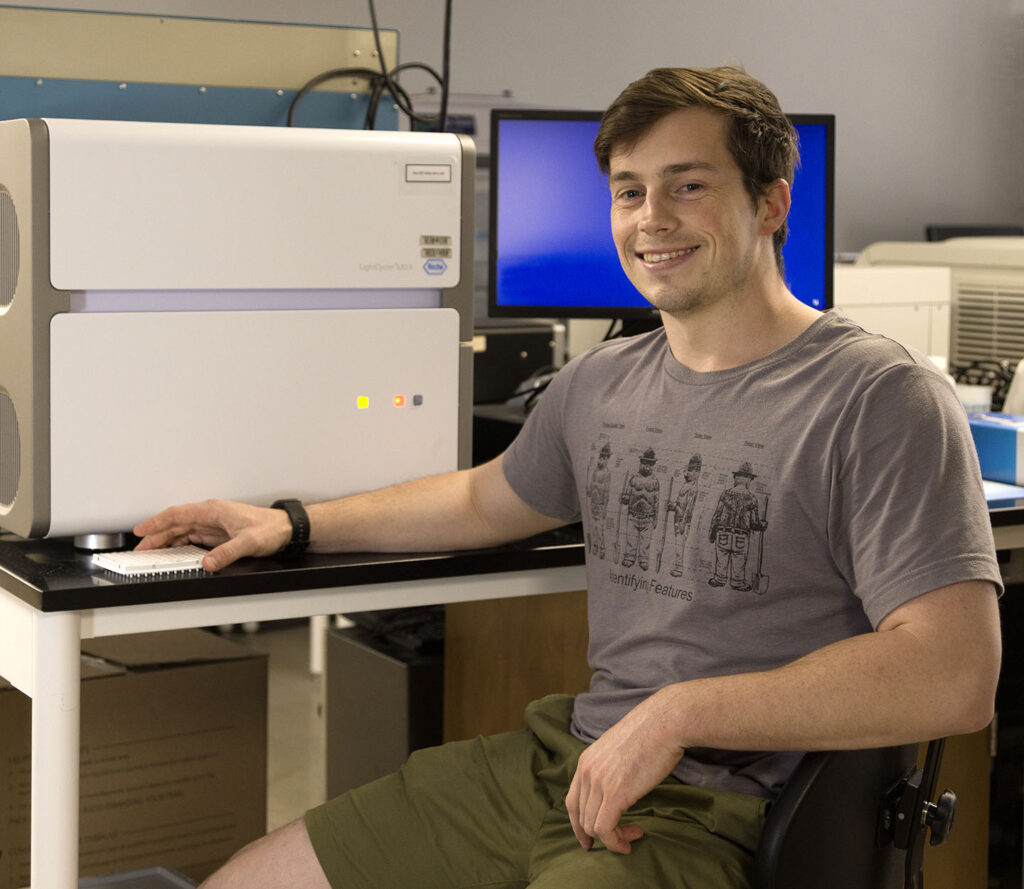Logan Moore

I am a postdoctoral associate in the Entomology department of the University of Georgia, and I am deeply interested in the molecular evolution of vertically transmitted symbionts of arthropod hosts. Symbionts are ubiquitous among all plants and animals, and most are acquired from the environment, or horizontally from other infected organisms. Rarely, some microbes will gain access to the germline of their host to become heritable like DNA – we refer to these symbionts as being vertically transmitted and they pass on from parent to offspring stably over evolutionary timescales. Microbes use several strategies to promote and facilitate this lifestyle. These strategies can be mutualistic, manipulative, or a combination of both. Through my work, I study 1) how these incredibly intimate relationships form, 2) the types of strategies symbionts evolve to support these relationships and 3) how these strategies evolve in response to pressure from the host and other environmental factors (e.g. natural enemies of the host, abiotic stressors).
In my current postdoctoral position, I research a viral symbiont of the parasitoid wasp Venturia canescens. At some point during their association, the genome of the viral symbiont became integrated into the genome of their Venturia host. Since then, virus replication and virus gene expression has fallen entirely under the control of the wasp. These types of viral symbionts are referred to as domesticated endogenized viruses and they are present across multiple parasitoid wasp groups with independent origins. Despite the integration of genomes and the loss of many virus genes due to pseudogenization, the expression of the remaining virus genes still results in the assembly of virus-like particles (VLPs) in Venturia. These VLPs are injected into the host of the Venturia alongside the egg and they will defend the egg from host immune effectors, allowing the wasp offspring to develop successfully. I study this relationship at the molecular level to understand how wasp and virus genes have evolved to work together to facilitate a mutualistic outcome.
I received my Bachelor of Science in Biology with Honours from the University of Victoria in 2017. In my senior year and as part of my Honours program requirements, I joined the lab of Dr. Steve Perlman to study the infection prevalence of the bacterial symbiont Spiroplasma across multiple ant species. The project resulted in my first co-authored publication and sparked an enthusiasm for insect symbiosis. The project also inspired me to continue my education with graduate studies. I joined the lab of Dr. Matthew Ballinger at Mississippi State University as a PhD student in 2018 where I continued to research vertically transmitted Spiroplasma. I focused on the evolution of Spiroplasma protein toxins which had been previously implicated in mutualistic defensive phenotypes. This and other side projects have resulted in four publications plus one in review over the course of my graduate studies. I graduated from Mississippi State University in 2024 with a PhD in Biological Sciences and a certificate in Computation Biology.